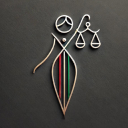No Safe Haven: HRF Seeks Prosecution of Israeli War Criminal Yair Ohana in Greece
Date Published

Athens- The Hind Rajab Foundation announces that on 3 September 2025, it has formally submitted a criminal complaint (μηνυτήρια αναφορά) before the Prosecutor of the Supreme Court of Greece, represented by its legal counsel Ms. Evgenia Kouniaki, against Major Yair Ohana, an officer of the Israeli armed forces. Ohana served as a company commander and logistics officer in the Givati Brigade’s 432nd Infantry Battalion “Tzabar”, one of the core units deployed in the genocidal campaign against the Palestinian people in Gaza. Mr. Ohana is now visiting Greece as a tourist.
The complaint, supported by a comprehensive evidentiary report prepared by the Foundation, demonstrates that Major Ohana bears individual criminal responsibility for war crimes, torture, and genocide. As a company commander within the 432nd Battalion, and an officer responsible for logistics, Ohana played a critical role in supporting the Battalion’s operations in Gaza and was therefore directly involved in its criminal conduct.
Nature of the Crimes
Systematic Attacks on Civilian Objects Without Military Necessity
As part of the so-called “Generals’ Plan,” the 432nd Battalion executed the wholesale devastation of Netzarim and Jabaliya, destroying homes, schools, hospitals, and essential infrastructure. These attacks were deliberate and controlled demolitions aimed at rendering large areas of northern Gaza permanently uninhabitable and served the strategic aim of erasing entire communities. Such acts may amount to directing attacks against civilian objects, extensive destruction of property, not justified by military necessity, as well as attacking or bombarding, by whatever means, towns, villages, dwellings or buildings which are undefended and which are not military objectives, war crimes under the Rome Statute and the Fourth Geneva Convention.
Torture and Inhumane Treatment
Evidence shows Ohana’s involvement in the transfer of Palestinians detained in Gaza under conditions of humiliation and abuse — blindfolded, bound, and transported to Israel. These acts violate the UN Convention Against Torture and constitute war crimes.
Genocidal Conduct
By creating conditions of life designed to prevent the survival of the civilian population in northern Gaza — through the destruction of entire residential neighborhoods and other civilian objects — the acts contribute to the crime of genocide, as defined in Article 6(c) of the Rome Statute: “deliberately inflicting conditions of life calculated to bring about the physical destruction of a people, in whole or in part.”
By transferring Palestinians arrested by the army in inhumane conditions to places where they were likely subjected to torture and ill-treatment, he also “caused serious bodily or mental harm,” as defined in Article 6(b) of the Rome Statute.
A video published by Ohana showing the destruction of an entire neighborhood
Jurisdiction of Greece
The presence of Yair Ohana on Greek territory establishes the obligation of the Greek state to act:
Article 28 of the Greek Constitution: international treaties such as the Geneva Conventions and the UN Convention Against Torture form part of domestic law and prevail over conflicting provisions.
Article 8 of the Greek Penal Code: Greek criminal law applies to crimes committed abroad when international treaties so require.
Article 7 of the UN Convention Against Torture (Law 1782/1988) and Articles 49, 50, 129, and 146 of the Geneva Conventions (Law 3481/1955) impose an absolute duty on states to prosecute or extradite perpetrators of torture and grave breaches (“aut dedere aut judicare”).
Accordingly, Greece cannot ignore the presence of a suspected war criminal and genocidaire within its territory. The law requires the initiation of a criminal investigation and, where evidence is substantiated, prosecution before Greek courts.
Regional and International Cooperation
The complaint and the full dossier of evidence against Yair Ohana were also shared with all neighboring countries of Greece — Turkey, Albania, North Macedonia, Bulgaria, and Cyprus — to encourage parallel action and prevent safe haven for suspected war criminals in the region. Furthermore, the report was also transmitted to Belgium, Spain, Ireland, Slovenia, South Africa, Brazil, and Peru, countries that have taken a leading role in supporting accountability for international crimes. A copy has also been submitted to Interpol, to facilitate international arrest mechanisms, and to the International Criminal Court (ICC) in The Hague, thereby forming part of the Court’s broader consideration of atrocities committed in Gaza.
The filing against Major Yair Ohana represents not only a demand for justice for the victims of Gaza, but also a test of Greece’s adherence to its international obligations. The crimes documented are not abstract violations — they are acts of calculated brutality, aimed at extinguishing a civilian population through destruction, displacement, and terror.
By opening proceedings against Ohana, Greece has the opportunity to stand on the side of international law, justice, and humanity, and to send a clear message that impunity for war crimes and genocide will not be tolerated on its soil.
Related posts

Belgium Denies Immunity to Israeli Minister, Forcing Cancellation of Visit
Amichai Chikli canceled his planned visit to Belgium because of the risk of arrest linked to our legal action. Israeli Kan News reported that Israel asked Belgium whether Chikli would have immunity, and Belgium responded that he would not.

War Criminal in Thailand: Case Filed Against Guy Azran - Thai Authorities Must Act
(ICC) against Guy Azran, a soldier from the 432nd Battalion of Israel’s Givati Brigade. War crimes Gaza City, July 2024
